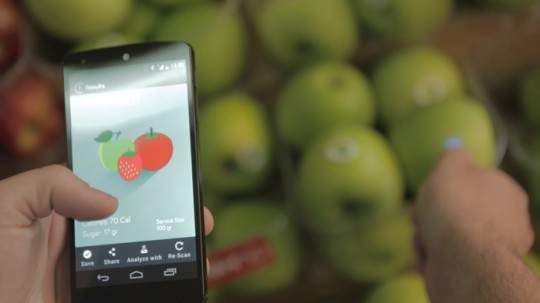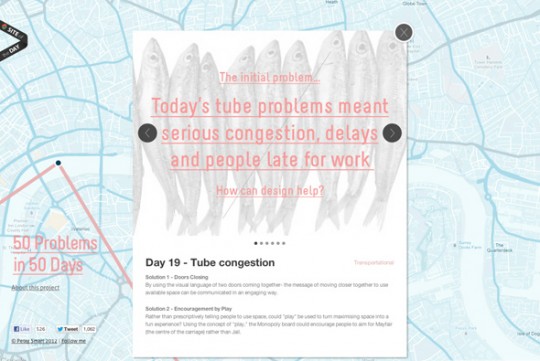Journal.
Smartphone sensors are about to get a whole lot smarter
There’s a new breed of sensor coming out – they measure the chemical composition of things using photon spectrometry, and these example applications from crowd-sourcing platforms show that there are countless amazing applications for these, in conjunction with smartphone apps.

This is the SCiO
Why does Web Design in Asia Seem so Backwards?
Some thoughts on web design in Asia. Randomwire wrote a piece back in November that I’ve just stumbled upon, exploring the technological, linguistic, and cultural reasons behind why Japanese websites appear old fashioned and hopelessly cluttered. It is excellent and thought-provoking.

50 Problems in 50 Days

Peter Smart solves 50 design problems in 50 days, travelling around Europe. A nice idea and beautifully executed site that won site of the day from awwwards.
Branding and Website for Patent and Trademark Attorneys, Letters & Thoo
This week saw the launch of the website for a new business in Hong Kong; the first new project that Turtle has completed since a sabbatical of some six months from new projects. We were keen to get back to it.
Letters & Thoo is a new patent attorney firm based in Hong Kong. L&T are not afraid to think in new ways, and our first goal was to create a brand identity for the fledgling business that communicated their values and their personality.

We reached consensus around a mark that conveys stability and credibility, while using bright colours and fonts with character to highlight that this is not your usual stuffy patent service company.
User Reviews & Comments: A Battle Between Engagement & Trust
Let’s have a look at best design practices for integrating user reviews and comments into your website.
There are many online services that seek users’ opinions to help other visitors make decisions. Sometimes this is a simple quantitative rating, as seen on Rotten Tomatoes with their average audience scores, or on Open Rice here in Hong Kong. It could be as simple as the ‘thumbs up’ or ‘thumbs down’ on YouTube or the ‘like’ button on Facebook. Other times user prose is solicited in the form of comment, forum replies, or reviews. Sometimes the user opinion extends to the judgement of other people’s comments. Witness YouTube comments being hidden for having too many negative marks, or the ordering of answers on Yahoo Answers or Quora by ‘most upvoted’.
There is undoubtedly a value to user interaction. TripAdvisor is built on the concept, and a quick look at YouTube ‘likes’ is a great indicator of video quality or relevance. But cheating the system is often possible, and a discerning interweb-surfer will remember to proceed with caution and truckloads of salt.
How do we create trust in the user-generated content on our websites?
Good question.

